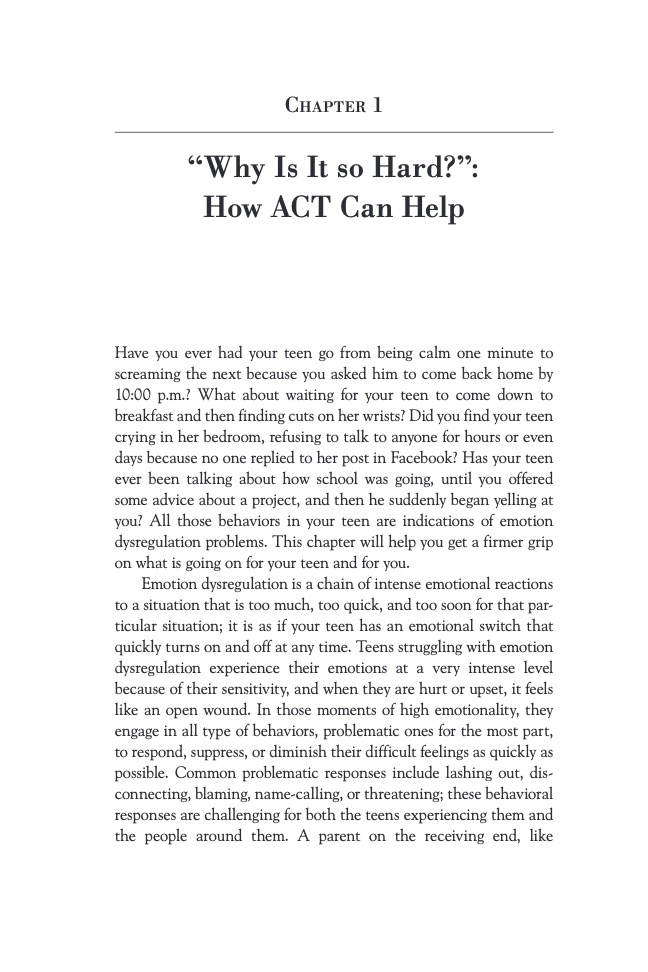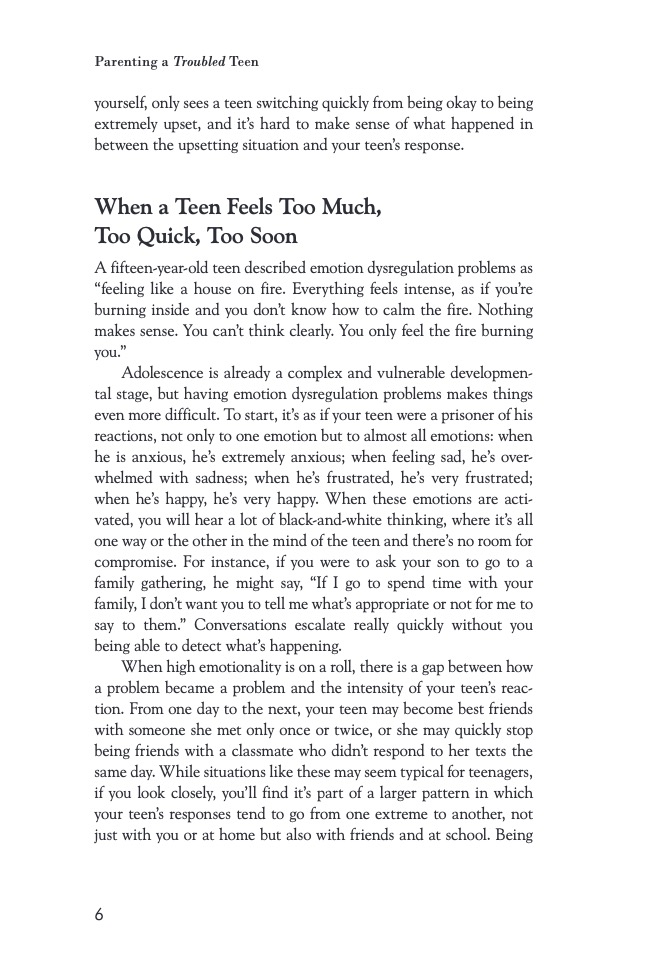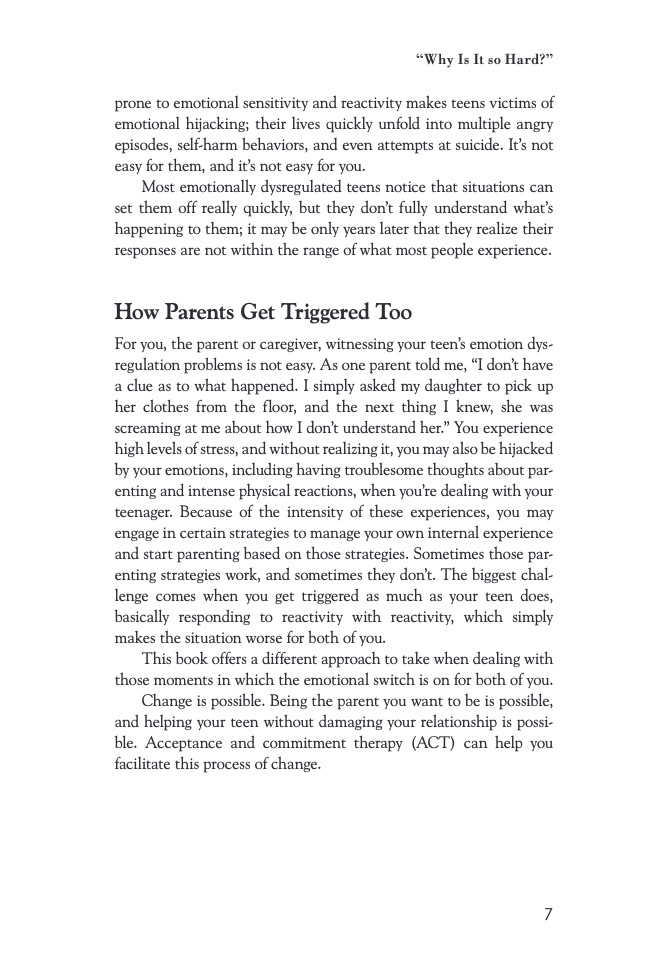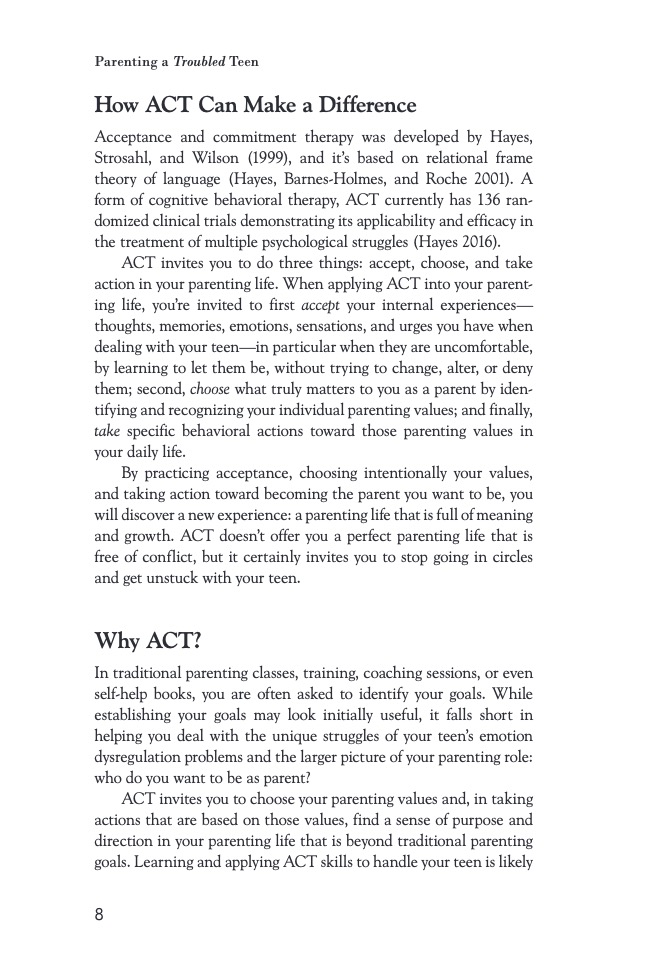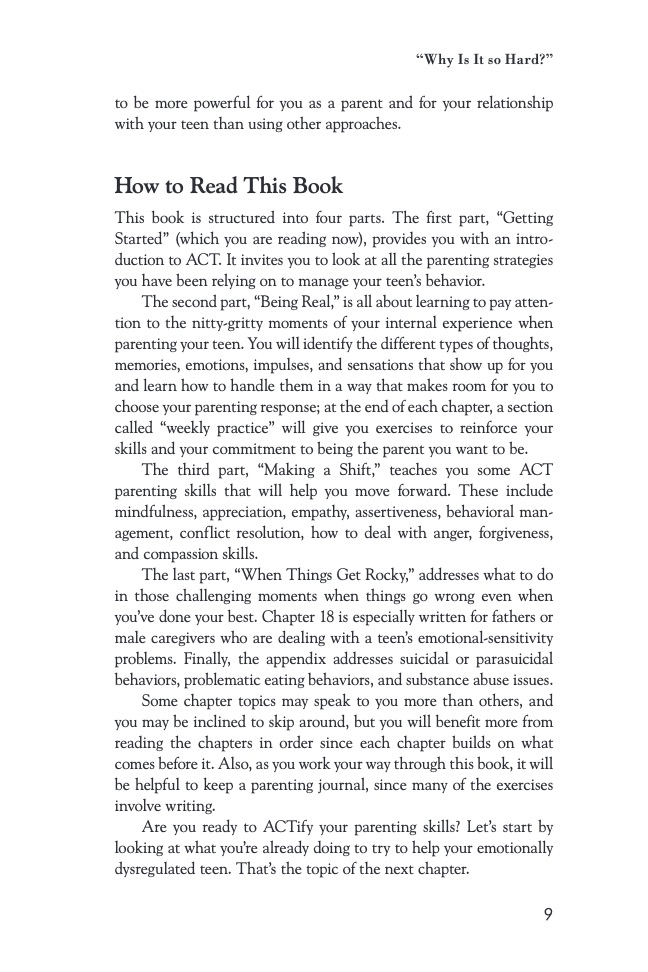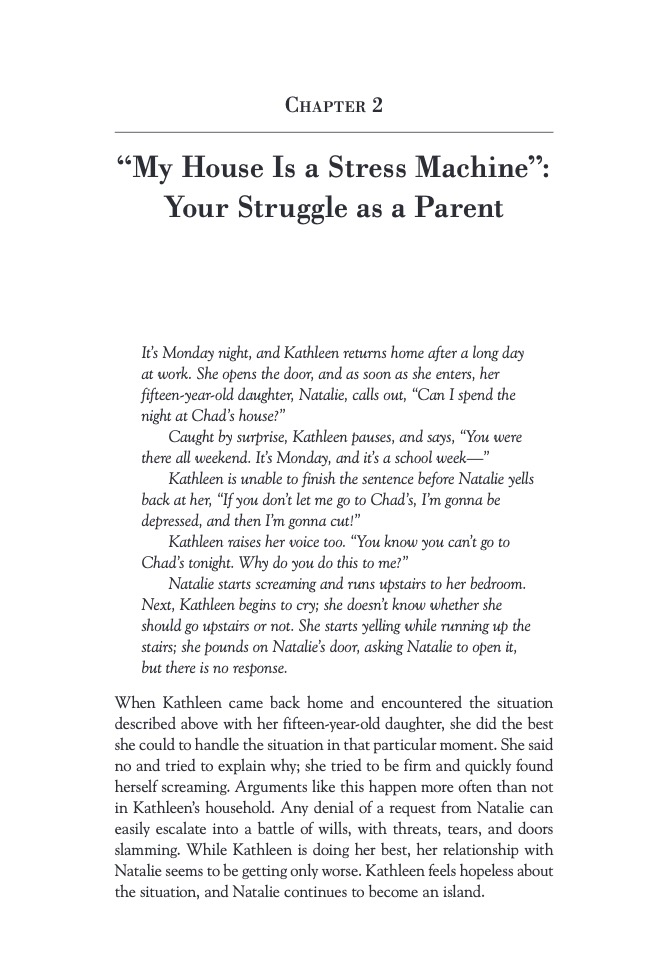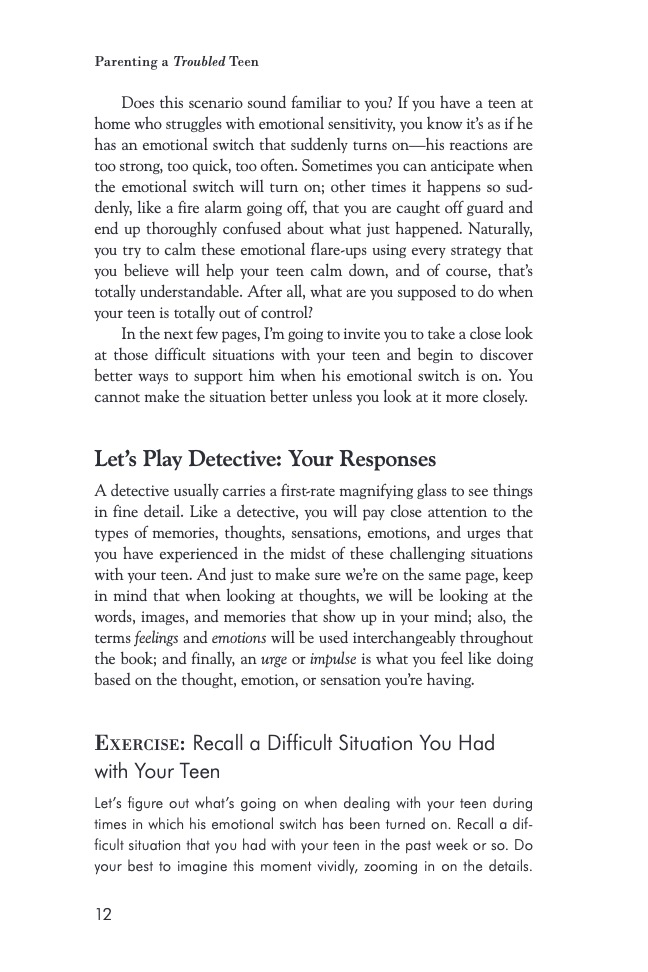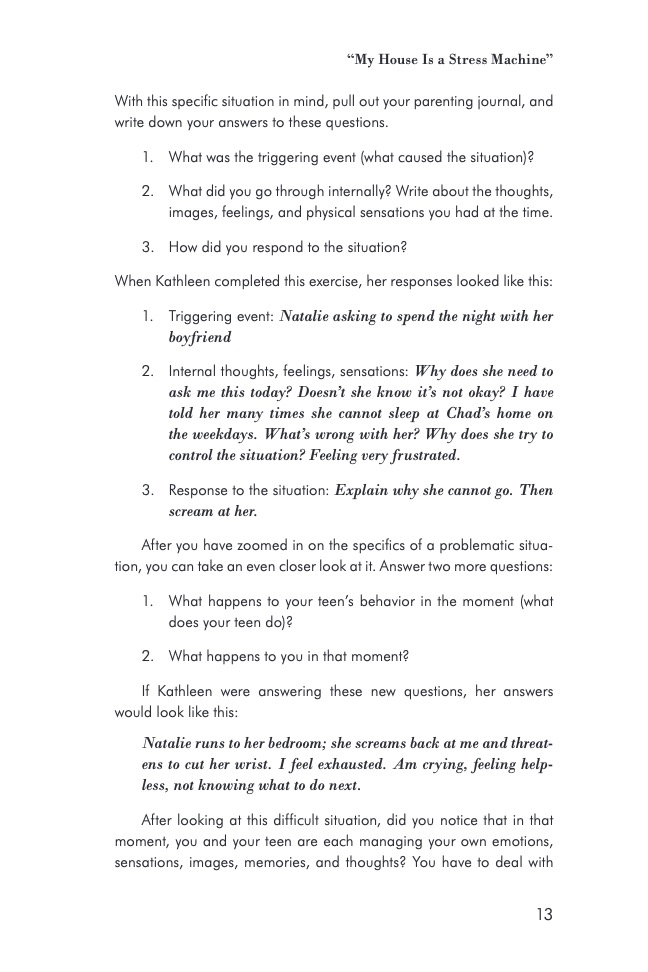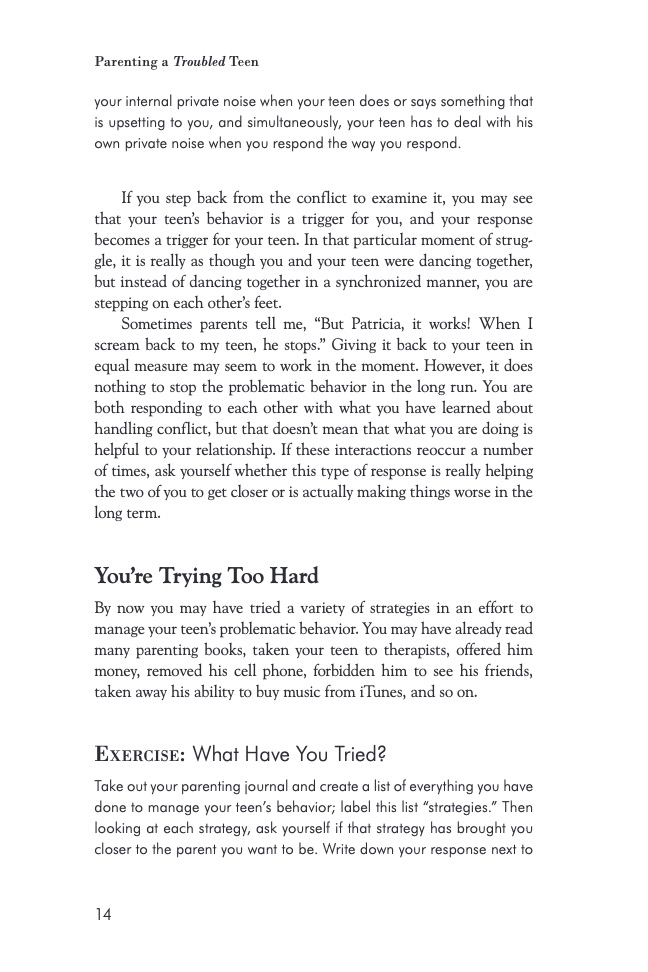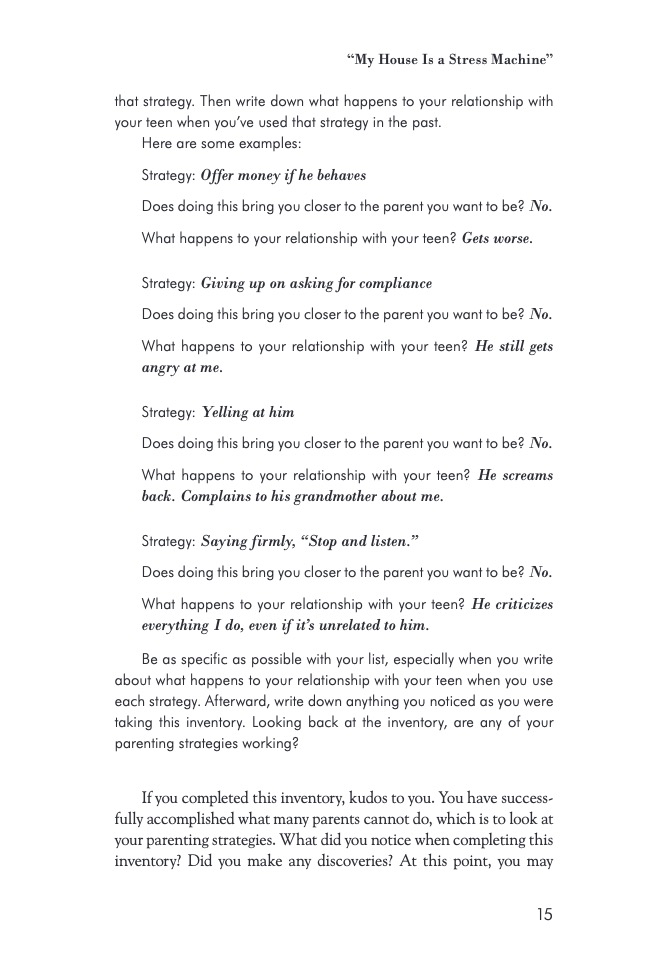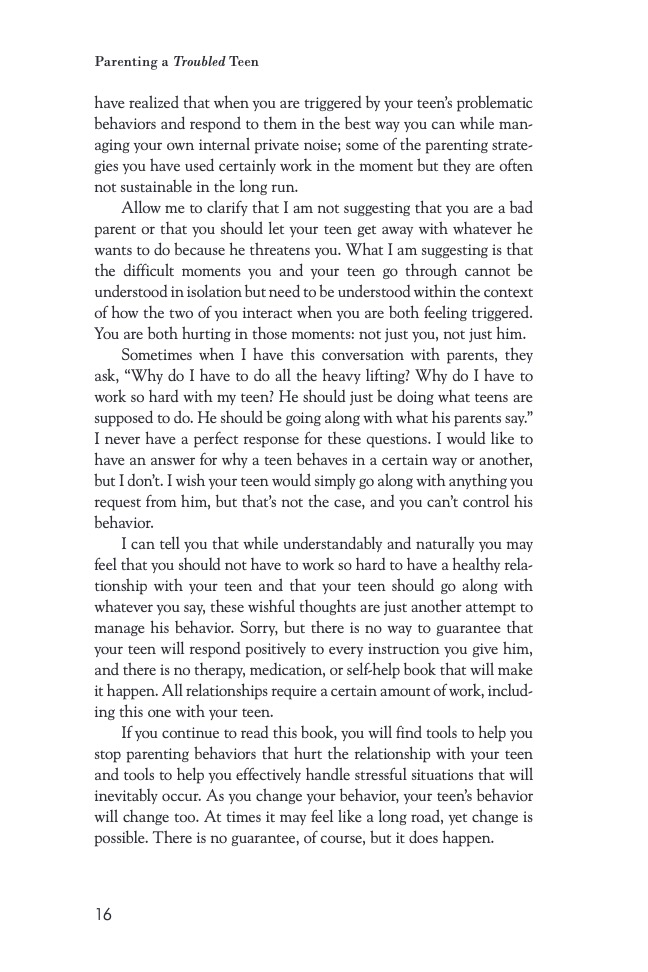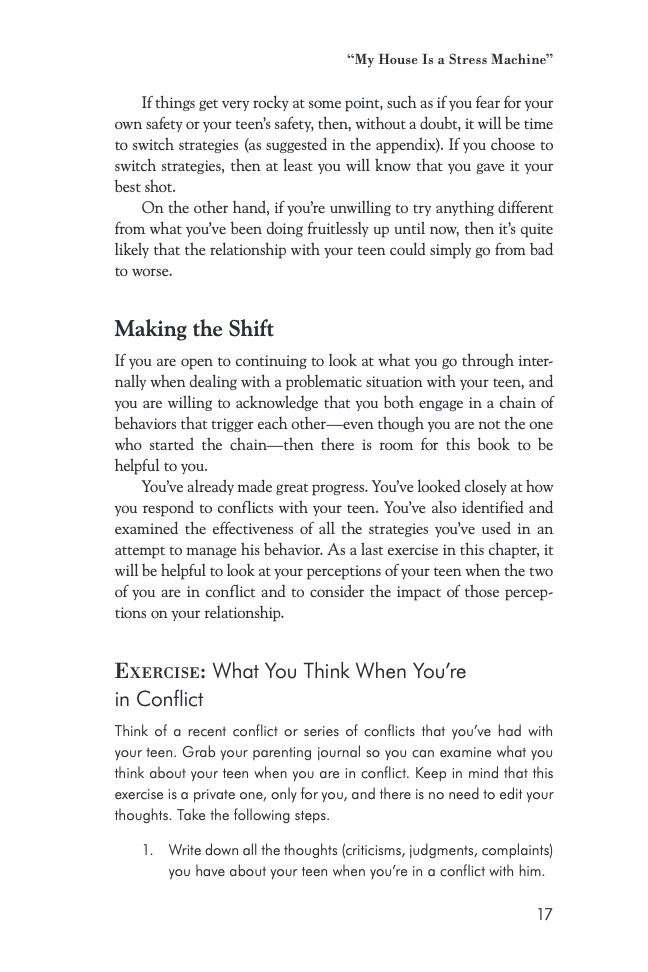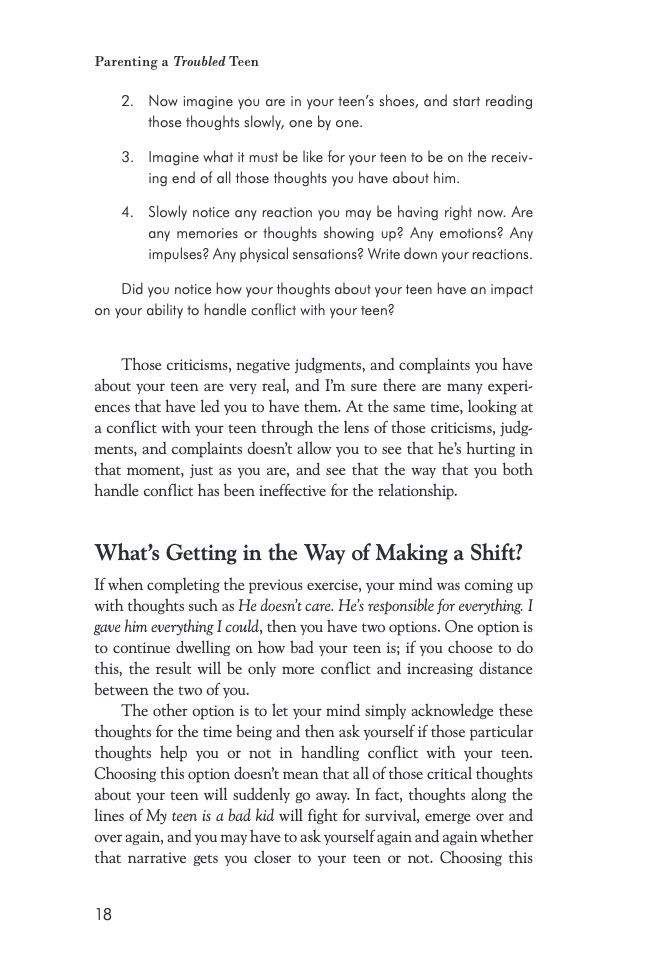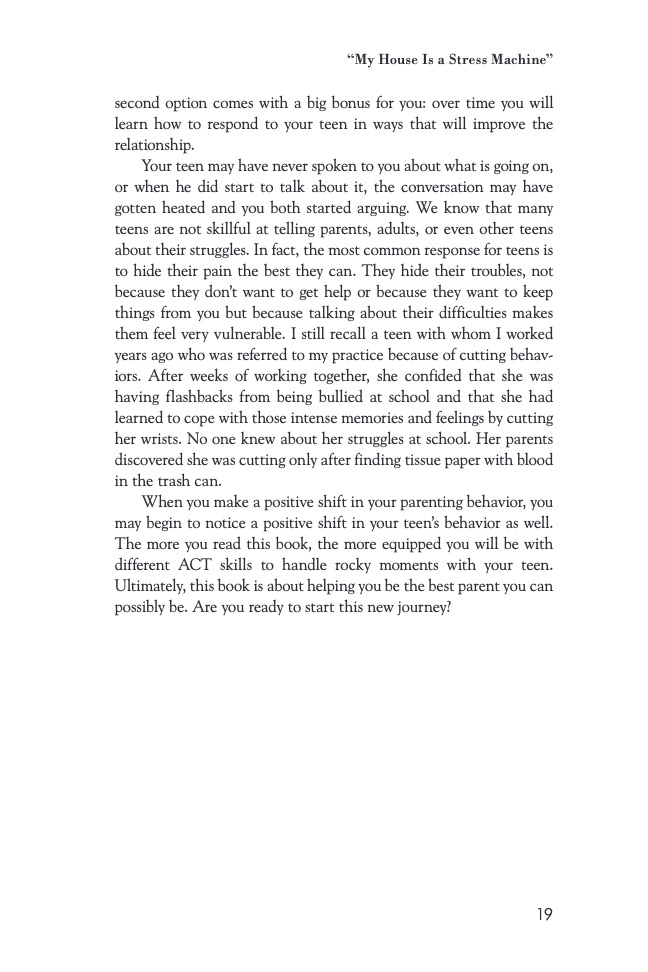
About the book
This book is an invitation for you to choose the parent you want to be when raising your teen with emotion dysregulation struggles. You require a specialized set of skills, and acceptance and commitment therapy (ACT) can make a difference for you. ACT (pronounced as a single word) is an empirically supported treatment approach based on a psychological theory of language known as relational frame theory (RFT) and has been researched in 136 randomized clinical trials, the most rigorous type of scientific research (Hayes 2016).
I did my best when writing this book, and now I want to invite you to continue giving your best for your teen while you learn new skills that will help. My best wishes to you in this journey of ACTifying your parenting skills!
Life brings all types of challenges to us, and we don’t see them coming at times. It’s life, and the business of being alive is not easy, but what’s the alternative when all types of struggles unexpectedly hit us? What’s the alternative when you don’t understand what’s going on with your teen despite all the love you have for him? Do you give up? Do you stoically tell yourself that you should embrace your pain? Do you tell yourself you should learn about it? Our minds naturally come up with many problem-solving strategies, but our pain is our pain, and our reality gap is our reality gap.
Here is what I have learned: we continue to search for what matters to us, our life treasure, and we make the best of every moment we have as if it’s the only moment we have left. In the end, life brings to us not only pain but also beautiful, sweet moments of connection and an invitation to choose how to live our life given where things are and how they are.
As every parent knows, having children brings both joy and pain. But nothing prepares parents for the unique trials and tribulations of a troubled teen. Fortunately, help is at hand. This book is an incredibly practical guide to helping your child reduce suffering, build richer relationships, and become more successful in the face of life’s many challenges. No matter how bad things may have gotten, it’s never too late to turn the tide; and step-by-step, in a compassionate and respectful way, this book will show you just how to do it
If you’re parenting a troubled teen, you almost certainly feel like a troubled parent who has a troubled parent-child relationship. If this sounds familiar, read this book! Zurita Ona comes to the rescue with this revolutionary guide for breaking unhelpful patterns of interacting with your teen, becoming the parent you truly aspire to be, and having a rich and meaningful relationship despite the emotional challenges.

What’s inside?
Chapter 1: “Why Is It So Hard?”: How ACT Can Help
Chapter 2: “My House Is a Stress Machine”: Your Struggle As Parent
Chapter 3: “She’s So Manipulative”: Judgment Thoughts
Chapter 4: “He Just Shouldn’t”: When Rules Become Rigid
Chapter 5: “My Time-Traveling Machine”: Worries and Ruminations
Chapter 6: “I Suck As a Parent”: Mind Stories
Chapter 7: “It’s an Emotional Rollercoaster”: Handling Those Intense Emotions
Chapter 8: “What Type of Parent Do I Want to Be?”: Your Parenting Values
Chapter 9: “I’m Here, Fully Present”: Mindfulness Skills
Chapter 10: “I See You”: Appreciation Skills
Chapter 11: “I Get It, It’s Hard”: Empathy Skills
Chapter 12: “I Think, I Feel, I Want”: Assertiveness Skills
Chapters
Pages
About Dr. Z.


Dr. Z, is a clinical psychologist specialized in working with children, adolescents, and adults struggling with OCD, anxiety, and emotion regulation problems. She’s the founder of the East Bay Behavior Therapy Center, a boutique therapy practice, where she runs an intensive outpatient program integrating Acceptance and Commitment Therapy (ACT) and Exposure Response Prevention (ERP) to support clients getting stuck from obsessions, figure out what they care about, and do stuff that matters to them.
Dr. Z. is a Fellow from the Association of Contextual Behavioral Science (ACBS), member of the OCD San Francisco Bay Area (affiliate from the International OCD Foundation), and a chair of committee for the Anxiety and Depression American Association (ADAA).

